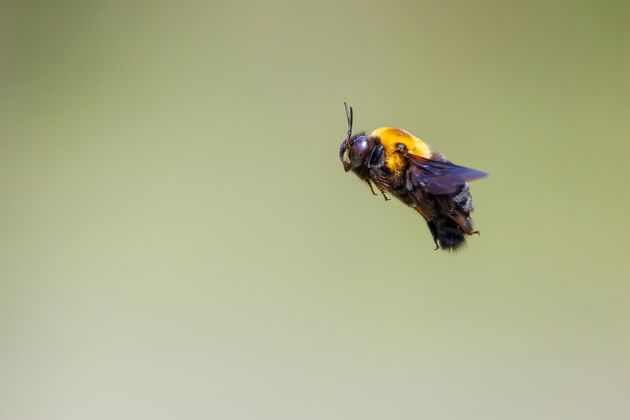
New research from Michigan State University has found that honey bees can detect biomarkers or chemical concentrations associated with lung cancer just by smelling human breath.
Not only that, but these clever little bugs can distinguish between different lung cancer cell types using the smell of the cultures.
Advertisement
Researchers hope that these findings will be used as a model for developing new tests for diagnosing lung cancer earlier.
Debajit Saha, an assistant professor in the Michigan State University College of Engineering and the Institute for Quantitative Health Science and Engineering said that the honey bees have an incredible sense of smell, meaning they can find just a small sample of the cancer.
Saha said: “The honey bees detected very small concentrations; it was a very strong result. Bees can differentiate between minute changes in the chemical concentrations of the breath mixture which is in the parts per 1 billion range.”
This research was done by attaching a 3D-printed harness to a live honey bee while a tiny electrode was attached to the bee’s brain to measure changes in the bee’s brain signals.
Advertisement
Incredible.
What this means for the future of cancer diagnoses
Researcher Autumn McLane-Svoboba said: “What’s amazing is the honey bees ability to not only detect cancer cells, but also distinguish between cell lines of various types of lung cancer.
“The future implications for this are huge as our sensor could allow for patients to receive specific cancer diagnoses quickly which is imperative for correct treatment routes.”
Saha and his team hope that this work will open the door for more scent-based disease detection technologies.
The team plan to develop a noninvasive test which will only require patients to breathe into a device and the sensor inside, based on honey bee brains, would analyse and report on the breath in real time.
How unbelievably exciting.





